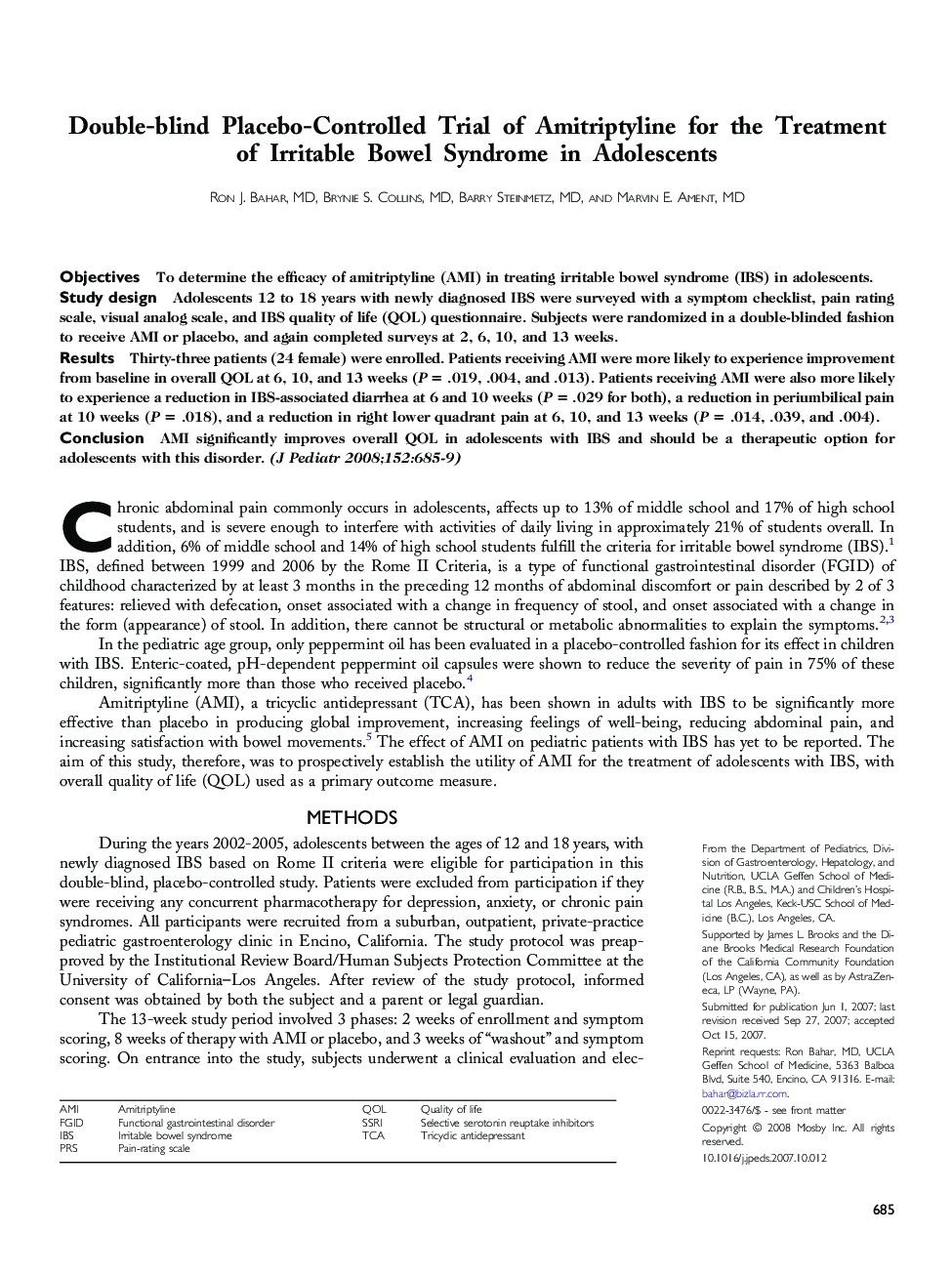| Article ID | Journal | Published Year | Pages | File Type |
|---|---|---|---|---|
| 4167525 | The Journal of Pediatrics | 2008 | 5 Pages |
ObjectivesTo determine the efficacy of amitriptyline (AMI) in treating irritable bowel syndrome (IBS) in adolescents.Study designAdolescents 12 to 18 years with newly diagnosed IBS were surveyed with a symptom checklist, pain rating scale, visual analog scale, and IBS quality of life (QOL) questionnaire. Subjects were randomized in a double-blinded fashion to receive AMI or placebo, and again completed surveys at 2, 6, 10, and 13 weeks.ResultsThirty-three patients (24 female) were enrolled. Patients receiving AMI were more likely to experience improvement from baseline in overall QOL at 6, 10, and 13 weeks (P = .019, .004, and .013). Patients receiving AMI were also more likely to experience a reduction in IBS-associated diarrhea at 6 and 10 weeks (P = .029 for both), a reduction in periumbilical pain at 10 weeks (P = .018), and a reduction in right lower quadrant pain at 6, 10, and 13 weeks (P = .014, .039, and .004).ConclusionAMI significantly improves overall QOL in adolescents with IBS and should be a therapeutic option for adolescents with this disorder.
